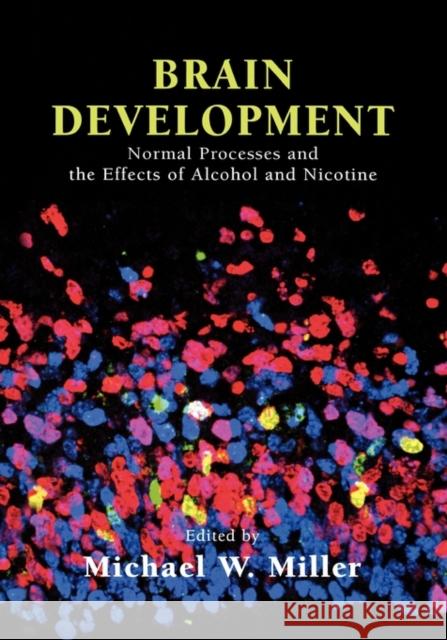Brain Development: Normal Processes and the Effects of Alcohol and Nicotine » książka
Brain Development: Normal Processes and the Effects of Alcohol and Nicotine
ISBN-13: 9780195183139 / Angielski / Twarda / 2006 / 424 str.
This is the first book about both normal development of the nervous system and how early exposure to alcohol and nicotine interferes with this development. The developing nervous system is highly dynamic and vulnerable to genetic and epigenetic factors that can be additive or synergistic. Disruption of normal brain development leads to an array of developmental disorders. One of the most common of these is mental retardation, the prime cause of which is prenatal exposure to alcohol. As chapters in this book show, alcohol has direct effects on the developing neural system and it affects genetic regulation. Another common neurotoxin is nicotine, and it is discussed in this book for three reasons: (1) the number of adolescents who smoke cigarettes is rising in some populations; (2) prenatal exposure to nicotine affects neurotransmitter systems that are critical for normal brain development and cognition; and (3) prenatal exposure to nicotine is often accompanied by prenatal exposure to alcohol.LThe mature brain is the culmination of an orderly sequence of the basic ontogenetic processes--cell proliferation, migration, differentiation, and death. Neural stem cells and progenitors proliferate in discrete sites; then, young neurons migrate long distances to their residences where they form neural networks. During this sequence many immature cells die, presumably eliminating unsuitable or non-competitive cells. Each process is regulated by genetic and environmental factors. When this regulation goes awry, a dysmorphic and dysfunctional brain results. Though this can be tragic in clinical settings, in experimental contexts it provides keen insight into normal brain development.LThe book is divided into three parts. The first describes neural ontogeny in the normal brain. The second and third deal with the consequences of early exposure to alcohol and nicotine. Though there are similarities in the effects of these two toxins, there are also intriguing differences. The commonalities reflect the plasticity and resilience of the developing brain while the differences point to the targeted effects of the two toxins. Exploring these effects brings a richer appreciation of brain development. The book will be of interest to neuroscientists, developmental biologists, teratologists, pharmacologists, toxicologists, neurologists, neuropsychologists, and to their students and trainees.











